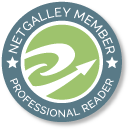Oh, how I love this little symbol. If it were a key on my laptop keyboard it would get a fair bit of use. Those occasions when you type something that asks a question in an excited manner, a rhetorical question, or is a statement of disbelief in the form of a question, for instance ‘You’re pregnant?!’ … ‘It was how much?!’ - how much more satisfying it would be to be able to type an interrobang at the end.
An American, Martin K. Speckter, conceptualized the interrobang in 1962. He was head of an advertising agency and believed that advertisements would look better if copywriters conveyed surprised rhetorical questions using a single mark rather than a question mark (interrogative point) and an exclamation mark or point (known in printers' and programmers' jargon as the "bang").
If you are using Microsoft Word, you can type an interrobang by switching to Wingdings 2, holding shift and typing 6^. Sadly I think the only way to use it on social media (at present) is to copy and paste a photo.
For more information on this funny little symbol and its inventor check out http://www.interrobang-mks.com/
An American, Martin K. Speckter, conceptualized the interrobang in 1962. He was head of an advertising agency and believed that advertisements would look better if copywriters conveyed surprised rhetorical questions using a single mark rather than a question mark (interrogative point) and an exclamation mark or point (known in printers' and programmers' jargon as the "bang").
If you are using Microsoft Word, you can type an interrobang by switching to Wingdings 2, holding shift and typing 6^. Sadly I think the only way to use it on social media (at present) is to copy and paste a photo.
For more information on this funny little symbol and its inventor check out http://www.interrobang-mks.com/



